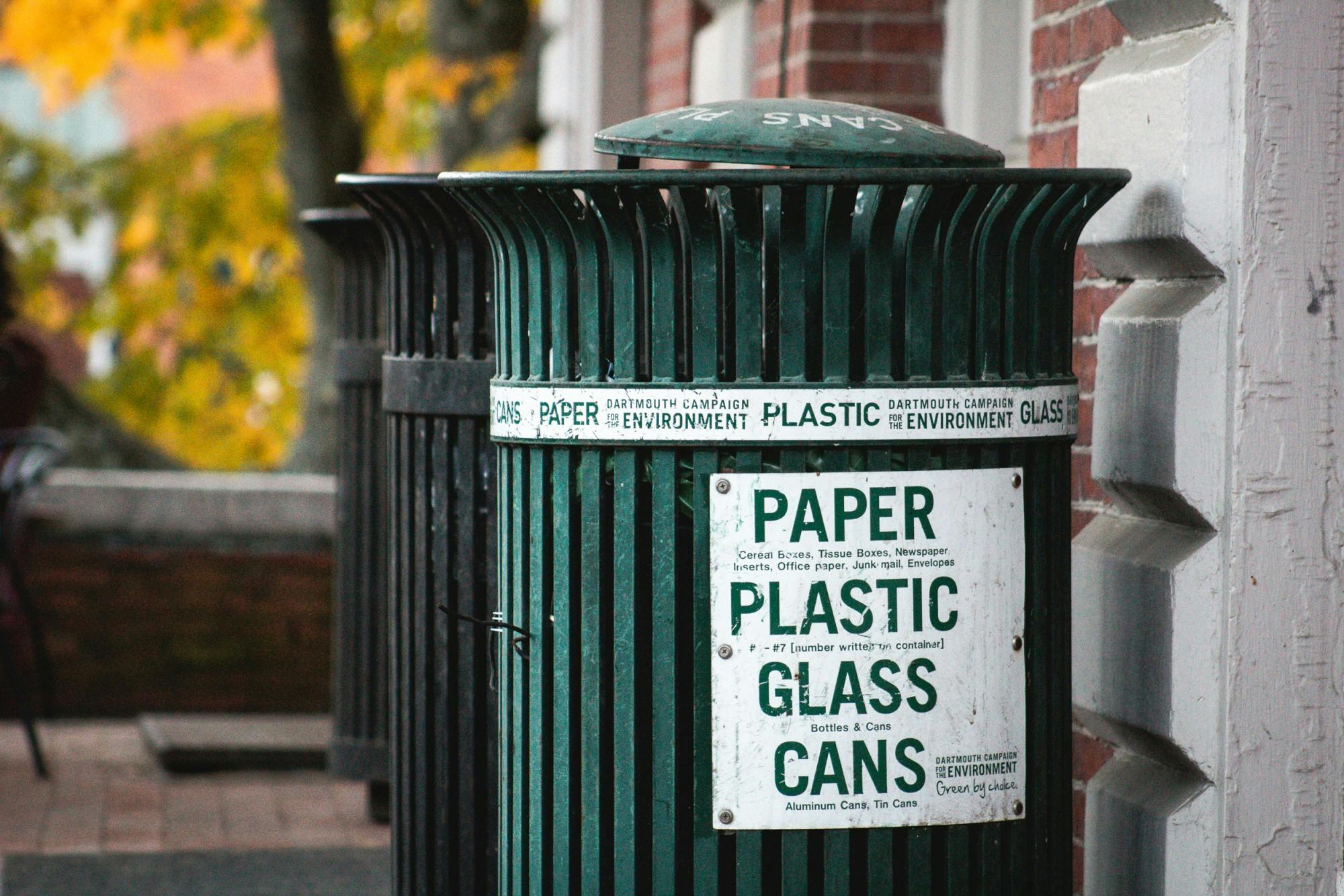From where to eat to where to party, Dartmouth students have lots of choices to make. When you throw something away, three choices emerge: trash, recycle or compost. Although this is usually a split-second decision, the reliability of recycling on campus is hotly debated. Where do Collis smoothies go when we’re done with them? Does Dartmouth even recycle?
Dara Casey ’25, who thrifts most of her clothes and pays attention to what she recycles, feels that Dartmouth tries “to make it appear” as though they recycle, but she’s not sure whether they actually do.
Jacob Garland ’25 — an intern at the Sustainability Office, member of the Environmental Students at Dartmouth, former member of the first-year Sustainability Action Program and environmental studies major — is even more doubtful. “Probably not,” he said.
The reasoning behind this two-word answer is more complex and layered than it may seem. Currently, Dartmouth Facilities Operations & Management recycles through our current vendor, Casella, for Zero-SortTM items, which accepts zero contamination. The zero contamination policy primarily originates from the recent stringent recycling policies in China, where American companies ship most of their recycling.
According to the associate director of FO&M Tim McNamara, Casella’s sorting requirements pose a difficulty for Dartmouth. “If we have 90% participation [recycling] perfectly and 10% screwing it up, it’s all screwed up,” he explained. Garland is unsure if Chinese recycling plants would even accept Casella’s recycling, as the rules make it extremely easy for recyclables to be rejected.
Thus, a main concern of FO&M and the Sustainability Office is recycling contamination. In a recent audit, FO&M found that about 45% of all recycling bags collected in a week were contaminated — bigger locations, like the library, had the most contamination.
In order to prevent recycling from being declared contaminated, FO&M contracts process coordinator Susan Weider explained that there are two main checks in place. The first check is with custodial services, who are directed to put recycling into the trash if they see obvious contamination and put non-contaminated recycling at the curb. The second check is another visual check for contamination by the crew that takes the recycling from the curb and brings it to the compactor. The materials are then sent to a transfer station in White River Junction where they are sorted and undergo another set of checks before the products make their way to the recycling plants overseas.
Effective recycling is therefore a responsibility not only of the College but also of the individual. Due to these strict contamination regulations, it only takes a few nonrecyclables to contaminate an entire bag of recyclable material. Yet, Casey noted that the College must also be clear and transparent on how to recycle by keeping students informed of proper practices.
“We are responsible for making the infrastructure be in place to have [recycling] happen,” Weider explained. “But we can’t be there directing students every single day with every single recycling container to do the right thing.”
To educate students, the Sustainability Office has outreach campaigns and student programs. For example, the posters displayed in Collis and dorm hallways are meant to inform students about which items can and cannot be recycled. Garland believes that there is nonetheless always more that can be done by the Sustainability Office and the administration.
“There is always, especially for sustainability, a wealth of ideas and a lack of actual person power to get it done,” Garland said. The issues are also always more complex than they seem on the surface. Garland hopes that more people will care about and be interested in sustainability, so that “we can take those ideas and make them happen.”
Do students actually care if Dartmouth recycles?
“Even if I'm not an ENVS major, I care about the future of the environment, so it’s important to me that Dartmouth does recycle,” Casey said. Weider thinks that most students care about recycling and are educated enough to do it properly, but those who continue to make mistakes can contaminate a whole container.
For many students, it is not a lack of knowledge or environmentalism, but rather a lack of time that leads to poor recycling habits. Students are busy and frankly do not have energy to sort through and consider their recyclables.
Garland mentioned how there is sometimes “a lack of effort when it comes to things that could potentially be recycled, but might require a little bit of work to do,” such as a plate with food residue. Although McNamara considers a multi-stream system, where waste is separated into two or more separate bins, less easily contaminated because people have to consider what can be recycled, Garland thinks if the college “were to go with a different route beside ZeroSort, that would require students to put in another layer of thought” and would thus be less effective.
All in all, Dartmouth makes an effort to recycle, but the current state of the recycling industry has flaws in its contamination regulations. Although this knowledge is somewhat discouraging, as a community we can still hope that our contributions will make a difference.
“Just looking outside the actual efficacy of recycling, I think developing that habit of being conscious about where we're putting our waste and what we're doing with it is hugely important,” says Garland. “Recycling is an easy foray into being more conscious about our consumption habits.”




